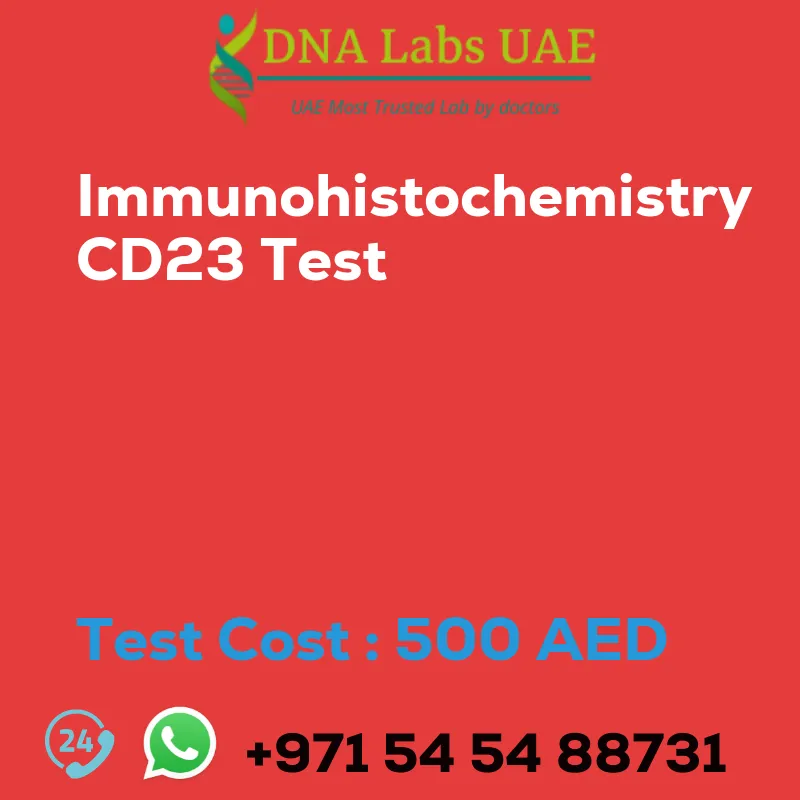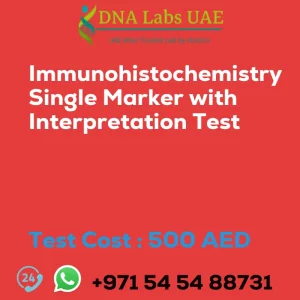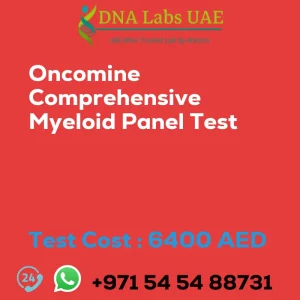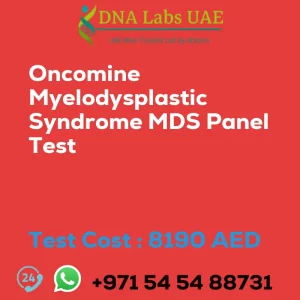IMMUNOHISTOCHEMISTRY CD23 Test
Test Name: IMMUNOHISTOCHEMISTRY CD23 Test
Components: CD23 protein marker
Price: 500.0 AED
Sample Condition: Submit tumor tissue in 10% Formal-saline OR Formalin fixed paraffin embedded block. Ship at room temperature. Provide a copy of the Histopathology report, Site of biopsy and Clinical history.
Report Delivery: Sample Daily by 6 pm; Report Block: 5 days Tissue Biopsy: 5 days Tissue large complex: 7 days
Method: Immunohistochemistry
Test Type: Cancer
Doctor: Oncologist, Pathologist
Test Department: DNA Labs UAE
Pre Test Information: Provide a copy of the Histopathology report, Site of biopsy and Clinical history.
Test Details
CD23 is a cell surface marker protein that is commonly used in immunohistochemistry (IHC) tests to identify and localize cells expressing this protein. CD23 is primarily expressed on B cells and is involved in regulating B cell activation and antibody production.
The CD23 IHC test involves the use of specific antibodies that bind to CD23 protein on tissue sections. This test is commonly used in the diagnosis and classification of various lymphomas, including follicular lymphoma and mantle cell lymphoma.
During the CD23 IHC test, tissue sections are first prepared by fixing them onto glass slides. The slides are then treated with a blocking solution to prevent non-specific antibody binding. Next, the primary antibody specific to CD23 is applied to the tissue sections and allowed to incubate. The primary antibody binds to CD23 protein if it is present on the cells in the tissue section.
After incubation with the primary antibody, the slides are washed to remove any unbound antibodies. A secondary antibody, conjugated to a detection molecule such as an enzyme or a fluorescent dye, is then applied. This secondary antibody binds to the primary antibody, allowing for the visualization of CD23-expressing cells. Finally, the slides are washed again to remove any unbound secondary antibodies.
The presence of CD23 protein is then visualized using a microscope. The staining pattern and intensity of CD23 expression can provide valuable information about the type and distribution of cells expressing this protein in the tissue sample.
The CD23 IHC test is an important tool in the diagnosis and classification of lymphomas, as well as in research studies investigating the role of CD23 in various diseases. It helps pathologists and researchers identify and localize CD23-expressing cells, aiding in the understanding of disease processes and guiding treatment decisions.
| Test Name | IMMUNOHISTOCHEMISTRY CD23 Test |
|---|---|
| Components | |
| Price | 500.0 AED |
| Sample Condition | Submit tumor tissue in 10% Formal-saline OR Formalin fixed paraffin embedded block. Ship at room temperature. Provide a copy of the Histopathology report, Site of biopsy and Clinical history. |
| Report Delivery | Sample Daily by 6 pm; Report Block: 5 days Tissue Biopsy: 5 days Tissue large complex : 7 days |
| Method | Immunohistochemistry |
| Test type | Cancer |
| Doctor | Oncologist, Pathologist |
| Test Department: | |
| Pre Test Information | Provide a copy of the Histopathology report, Site of biopsy and Clinical history. |
| Test Details |
CD23 is a cell surface marker protein that is commonly used in immunohistochemistry (IHC) tests to identify and localize cells expressing this protein. CD23 is primarily expressed on B cells and is involved in regulating B cell activation and antibody production. The CD23 IHC test involves the use of specific antibodies that bind to CD23 protein on tissue sections. This test is commonly used in the diagnosis and classification of various lymphomas, including follicular lymphoma and mantle cell lymphoma. During the CD23 IHC test, tissue sections are first prepared by fixing them onto glass slides. The slides are then treated with a blocking solution to prevent non-specific antibody binding. Next, the primary antibody specific to CD23 is applied to the tissue sections and allowed to incubate. The primary antibody binds to CD23 protein if it is present on the cells in the tissue section. After incubation with the primary antibody, the slides are washed to remove any unbound antibodies. A secondary antibody, conjugated to a detection molecule such as an enzyme or a fluorescent dye, is then applied. This secondary antibody binds to the primary antibody, allowing for the visualization of CD23-expressing cells. Finally, the slides are washed again to remove any unbound secondary antibodies. The presence of CD23 protein is then visualized using a microscope. The staining pattern and intensity of CD23 expression can provide valuable information about the type and distribution of cells expressing this protein in the tissue sample. The CD23 IHC test is an important tool in the diagnosis and classification of lymphomas, as well as in research studies investigating the role of CD23 in various diseases. It helps pathologists and researchers identify and localize CD23-expressing cells, aiding in the understanding of disease processes and guiding treatment decisions. |








